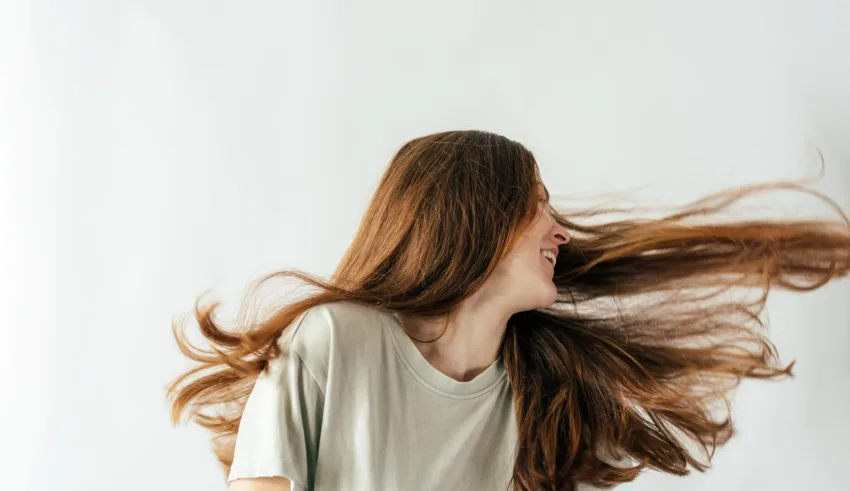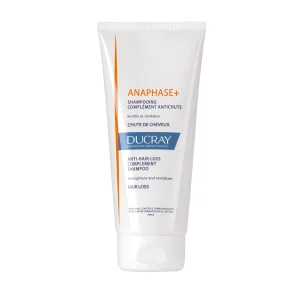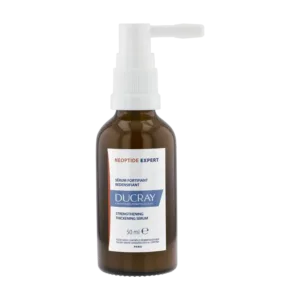
It’s normal to lose a few hairs every day, as part of the normal hair growth cycle. In most cases, the lost hair grows back and you keep a full head of hair. But illness, hormonal changes, stress, aging and hereditary diseases can disrupt the hair growth cycle. More hair falls out, but new strands don’t always grow back. Losing hair can be frustrating because there aren’t many treatment options. But this year, many new options for hair loss reversal have emerged, each based on years of promising research.
What are the different types of hair loss?
Some types of hair loss are permanent, while others are temporary. The most common types of hair loss are as follows:
- Androgenic alopecia: This type of hereditary baldness can affect anyone (male pattern baldness or female pattern hair loss).
- Alopecia areata: Alopecia areata is an autoimmune disease that causes hair loss on the head and body.
- Telogen effluvium: This type of hair loss results in rapid hair loss over a short period of time. It usually occurs a few months after the body has undergone physical or emotional stress.
- Anagen effluvium: This very rapid hair loss is due to certain medical treatments.
What are the causes and symptoms of hair loss?
Hair loss can have many causes. The most common are:
- Hereditary hair loss due to genetics (genes inherited from your parents).
- Fungal infections of the scalp.
- Hairstyles that pull hard on the hair (such as braids, hair extensions or tight ponytails).
- Hair treatments that can damage the hair (including perms and bleaches).
- Hormonal changes (pregnancy, childbirth or menopause).
- Medical treatments (such as chemotherapy and certain medications).
- Nutritional deficiencies (particularly insufficient iron or protein intake).
- Stressful events (such as surgery or the loss of a loved one).
- Thyroid disease.
Hair loss manifests itself in different ways, depending on the type of hair loss and its cause. The most common symptoms are:
- Receding hairline (typical of male pattern baldness).
- Hair thinning over the entire head (typical of female baldness).
- Loss of small patches of hair on the scalp.
- Hair loss on scalp and body.
What are the tips for healthier hair?
Certain practices and products can contribute to hair health and hair loss reversal. These include:
1- Massaging the scalp
A daily 4-minute scalp massage stimulates hair growth (1).
2- Taking multivitamin supplements
Vitamin deficiencies can be a risk factor for hair loss. Here are a few vitamins and minerals that can help:
- selenium
- vitamin B
- zinc
- vitamin D
- iron
- vitamin A
- vitamin C
- vitamin E
Anyone considering taking a multivitamin supplement should first consult a physician. The best products contain all or most of the recommended daily amounts of each vitamin and mineral in a single dose.
Look into the following food supplement that provides the hair bulb with essential nutrients (such as vitamins B6, B8, E, and iron). This strengthens the hair and promotes quality growth.
Our pick:
Ducray Anacaps Food Supplements
3- Avoid crash diets
Very low-calorie diets can deprive the body of essential nutrients, including those needed for healthy hair, such as protein, fatty acids and zinc. Crash diets generally do not result in permanent weight loss.
Hair loss can occur in people who lose body cell mass as a result of weight loss due to a low-calorie diet (2). This can lead to temporary hair loss.
4- Take care of your hair and scalp
Taking care of your hair and scalp can help prevent hair loss. It can also improve hair growth. Keeping the scalp and hair clean can also prevent hair damage and loss.
Avoid aggressive hair treatments such as heated tools, dyes and bleaches. Hairstyles such as tight ponytails or braids can also affect your hair.
5- Look for shampoos that prevent hair loss
Certain ingredients promote hair growth and improve overall scalp health. Look for shampoos that contain these key ingredients:
– Adenosine: Scientific ingredient that influences hair growth cells in the scalp to improve hair growth.
– Peptides: Help add nutrients and form a protective layer around the hair to prevent breakage.
Avoid shampoos containing harsh chemicals, such as sulfates and parabens, as they can strip hair of its natural oils, causing dryness and damage. Instead, opt for shampoos that are free of these chemicals or labeled “sulfate-free” and “paraben-free”.
Here is our pick for the best anti-hair loss shampoo.
Ducray Anaphase + Anti-Hair Loss Complement Shampoo
6- Use a targeted treatment for hair loss
Apply a targeted hair loss treatment to your scalp to stimulate microcirculation and promote the delivery of nutrients and oxygen to the hair follicle. A targeted treatment like a lotion or serum can thicken hair, increase volume and strengthen the hair fiber.
We recommend:
For occasional hair loss:
Ducray Creastim Anti-Hair Loss Lotion
For chronic hair loss:
Ducray Neoptide Expert Anti-Hair Loss & Growth Serum
Can hair loss be reversed?
Reversing hair growth depends on the cause of the hair loss. A dermatologist can determine whether a person’s hair can grow back on its own.
Hair loss can be temporary and reversed in the following cases:
- If hair loss is due to medication, hair may begin to grow back once the person has stopped taking the medication. Complete regrowth can take up to 18 months.
- During pregnancy, hair loss may be due to a decrease in estrogen levels. Many people also experience temporary hair loss around 3 months after giving birth.
- In mild cases of the autoimmune disease alopecia areata, hair loss may be reversed after treatment.
- Anti-cancer treatments such as chemotherapy or radiotherapy can cause hair loss, which may be reversed once treatment has ended.
- People may experience significant hair loss due to stress for weeks or months after major surgery or serious illness.
- Hair loss can occur if one loses more than 20 pounds.
Frequently asked questions
How many strands of hair normally fall out per day?
It’s normal to lose around 100 to 150 strands of hair a day.
What’s the best treatment for hair loss?
As hair can fall out for a number of reasons, there is no single best treatment. Depending on the cause, a doctor may recommend medication, diet changes, the application of certain products to the scalp or hair, and hair protection.
How can I stop hair loss naturally?
For some people, dietary changes can help reduce or prevent hair loss. These include eating more protein, following the Mediterranean diet and avoiding crash diets.
Summary
People looking for a treatment to prevent hair loss or regrow hair have several potential options. The effectiveness of each option varies from person to person and may depend on the cause of hair loss.
It is advisable to consult a physician before starting any new hair loss treatment or taking any supplements.












